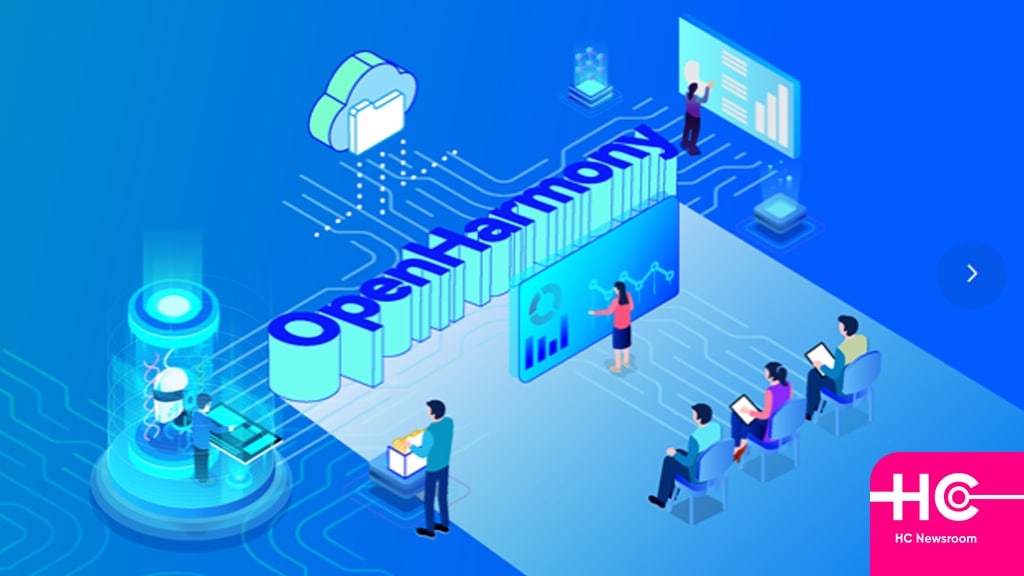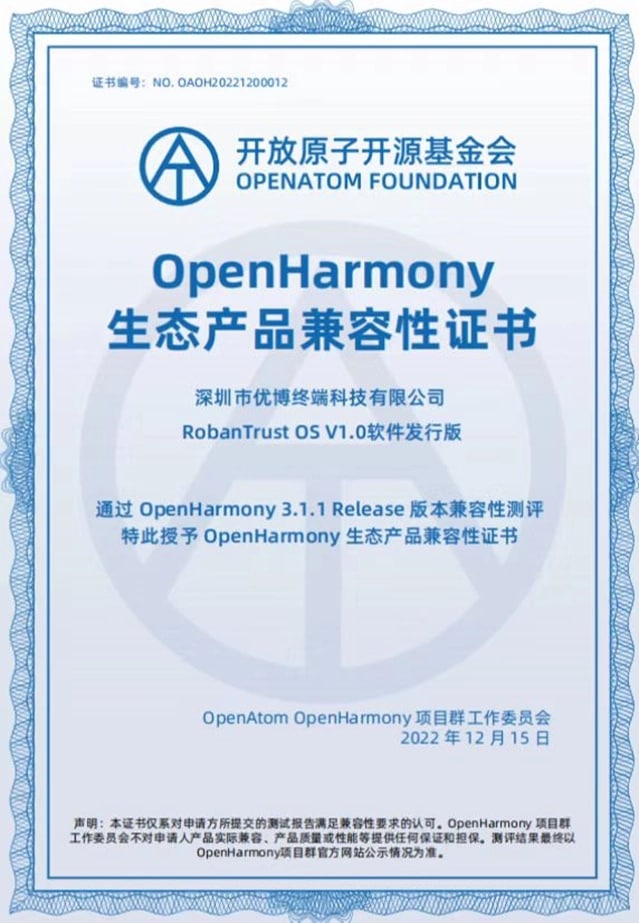News
RobanTrust OS passes OpenHarmony compatibility test

The latest version of China’s Youbo Terminal RobanTrust OS has recently passed the OpenHarmony operating system compatibility evaluation test and received the OpenHarmony ecosystem product compatibility certificate.
This software release will form an integrated software and hardware solution together with the self-developed hardware products of Youbo Terminal, which will help OpenHarmony devices adapt to diversified scenario applications.
RobanTrust OS release version of UBo Terminal released this time is based on the OpenHarmony standard system and integrates multiple display technologies such as LVDS, MIPI, EDP, and HDMI.
It uses software to define new product forms and experiences, and utilizes new features of distributed operating systems to enable multi-device Seamless connection to build a full-scenario multi-device “super terminal”.
The targeted enhancements have also been made in system architecture, data storage, application protection, and more. Hence, users only need to focus on their own business needs and directly use the RobanTrust terminal OS release version SDK can quickly establish reliable connections with the cloud, establish a secure data transmission channel, and support remote updates.

Additionally, through the self-developed OpenHarmony stability test automation tool, simulate user usage scenarios, and test the OpenHarmony system and industry applications conduct stability stress tests.
The “Luban lock” structure is used to form a three-dimensional and stable three-dimensional structure, which reflects the excellent R&D technology of the U-Bo terminal, which has the characteristics of safety, speed, and stability. “Luban” create modern open-source methods and contributes to the development of the localized open-source industry.
RobanTrust OS software release version of Youbo Terminal is currently released as version V1.0, which is based on OpenHarmony3.1.1-Release and integrates the AI-enhanced subsystem set of Youbo Terminal (including Caffe, TensorFlow, PyTorch, Onnx, Rknn, python Golang environment).
The performance optimization subsystem, etc., as well as UBO terminal extension APP (such as TTS, OTA, file manager, Chinese input method, etc.), can support a variety of device development boards in the OpenHarmony community.
The release of the RobanTrust OS release version of the U-Bo terminal can accelerate the commercial implementation of the OpenHarmony system in the fields of consumption, finance, energy, industrial manufacturing, and other fields with high computing power and complex requirements, and support the localization deployment of all walks of life.






